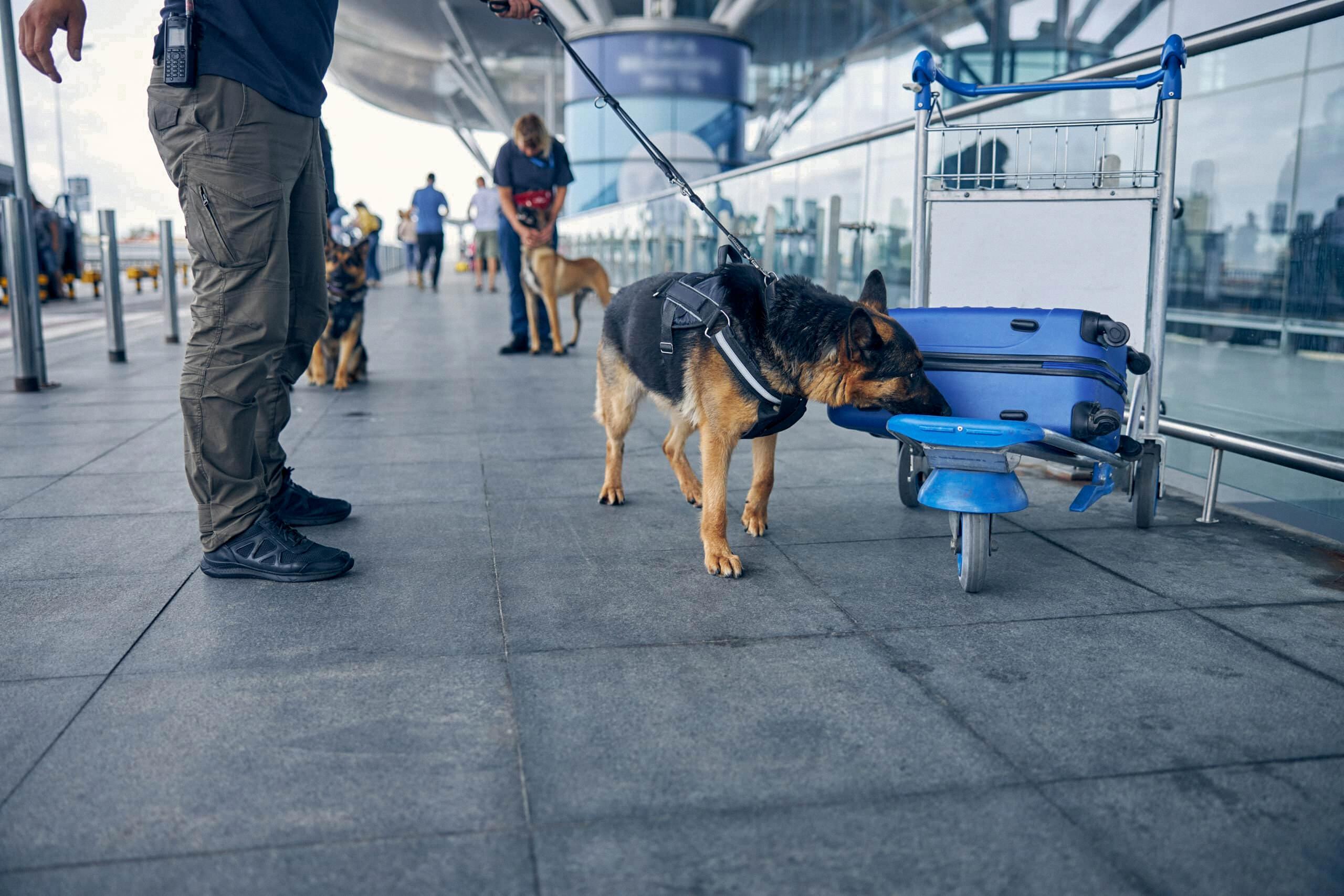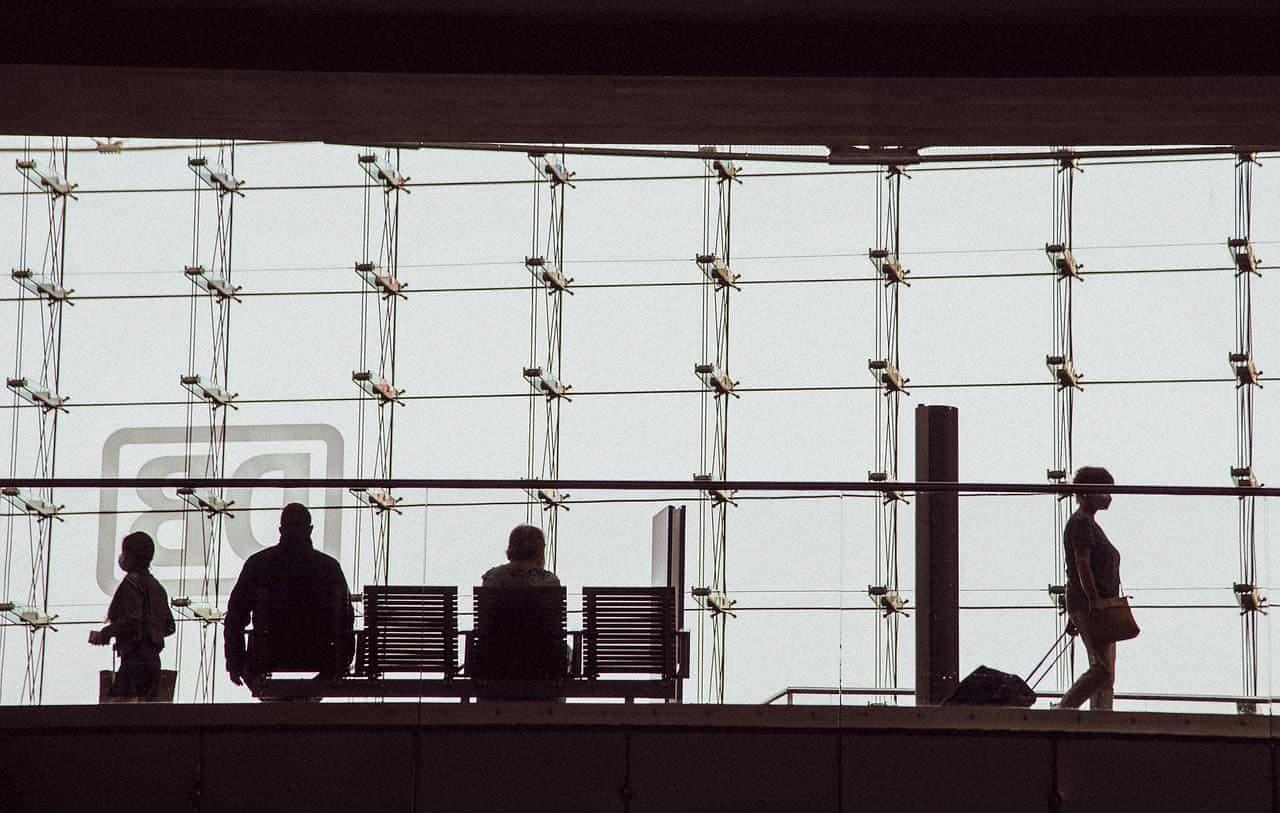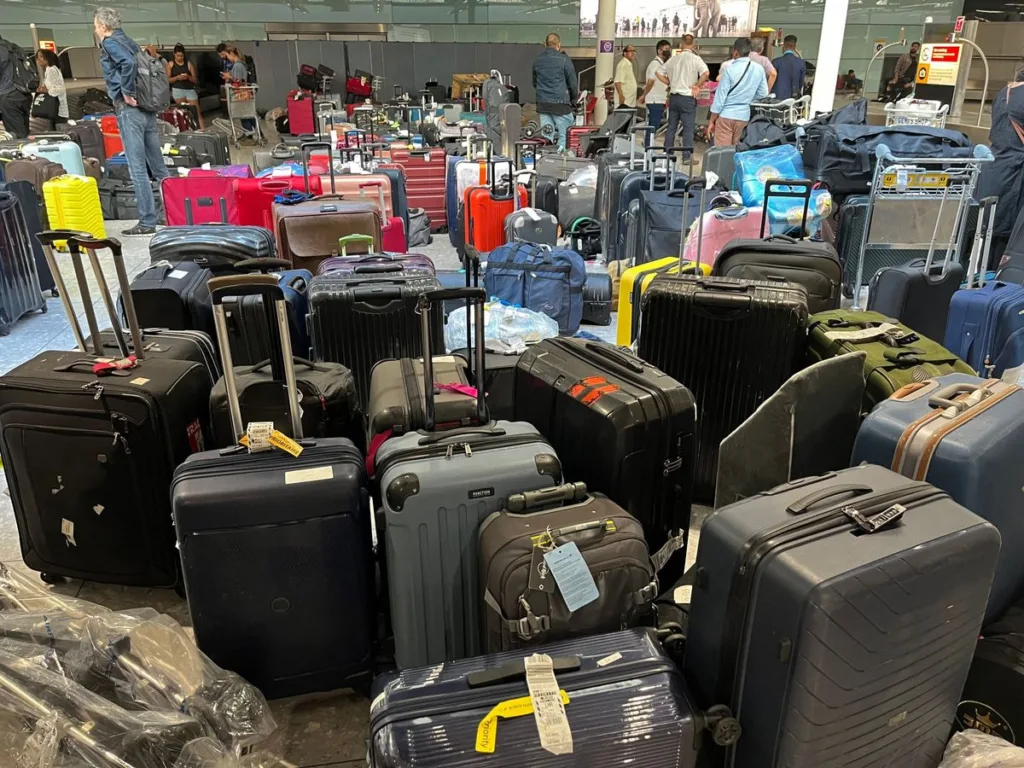Drugs are a serious issue in our society, and airports are no exception. Many travelers wonder whether their checked bags will be searched for drugs. In this blog post, we will explore this topic in detail and provide you with all the information you need to know.
First of all, it is important to note that TSA security officers do not search for marijuana or other illegal drugs during the security screening process. However, if any illegal substance is discovered during this screening, TSA will refer the matter to a law enforcement officer.
So, how do airports detect drugs in checked bags? As a bag goes through the scanner, it absorbs radiation energy from the X-ray. The density of contraband such as drugs is well known, and it is easy to spot by airport security. Once a detector identifies an object with suspicious density, the bag will be flagged for additional inspection.
Most airports screen checked bags electronically, either by X-raying the bag or examining it for explosive-chemical residues. If these electronic means detect anything suspicious, inspectors will hand-search the bag. At a few airports that lack detection machines, your bag will likely be hand-searched, among other methods.
It is important to note that if prohibited items are found during security checks, they will not be returned to their owners. This is a clear rule outlined by TSA guidance. Confiscations are permanent, and travelers should be aware of this when packing their bags.
In summary, while TSA security officers do not search for drugs during the security screening process, airports use varous methods to detect illegal substances in checked bags. Travelers should be mindful of this and ensure that they do not pack any prohibited items in their luggage to avoid any issues during their travels.
Does the TSA Check for Possession of Small Amounts of Drugs?
No, TSA security officers do not actively search for small amounts of drugs or any other illegal substances during their screening process. However, if any illegal substance is discovered during security screening, TSA will refer the matter to a law enforcement officer for further investigation. It is important to note that TSA’s primary responsibility is to ensure the safety and security of the traveling public, and their screening procedures are designed to detect prohibited items and potential threats to aviation security. While TSA may not be actively searching for drugs, passengers should stil be aware that attempting to bring any illegal substance through security can result in serious consequences.

Source: bestluggagebackpacks.com
TSA’s Detection of Drugs
The TSA uses X-ray scanners to examine the contents of your carry-on luggage. As your bag passes through the scanner, it absorbs radiation energy from the X-ray, which creates a clear image of the objects inside. The density of common objects like clothing and toiletries is well known and easy to identify. However, items with a suspicious density, such as drugs or othr contraband materials, stand out in the scanner’s image. Once a detector identifies an object with a suspicious density, the bag is flagged for additional inspection. At this point, TSA agents will conduct a thorough search of the bag to determine whether or not illegal substances are present. It’s important to note that the TSA’s primary goal is to ensure the safety of all passengers, and they take their responsibility very seriously. If you are caught trying to smuggle drugs through airport security, you could face serious legal consequences.
Checked Bag Searches: Triggers and Causes
A checked bag may be triggered for a search if it raises any suspicion during the electronic screening process. This screening process usually involves X-raying the bag or examining it for explosive-chemical residues. If anything unusual or suspicious is detected, the bag will be flagged for futher inspection. In some cases, a bag may also be searched if it is oversized, overweight, or if it contains prohibited items such as weapons, drugs, or liquids over the limit. It’s important to note that the Transportation Security Administration (TSA) may also randomly select bags for additional screening as part of their security protocol. If your bag is selected for a search, TSA agents will conduct a hand search of the bag and may also ask you additional questions about its contents.
Consequences of TSA Finding Something in Checked Bag
If TSA finds something in your checked bag that is prohibited, they will take it out of your bag and confiscate it. The items that are not allowed in checked bags include firearms, explosives, and flammable items. If you have accidentally packed any of thse items in your checked bag, they will be removed and not returned to you. It is important to follow TSA guidelines and pack only allowed items in your checked bags to avoid any inconvenience during your travels. Additionally, if TSA finds something in your checked bag that they suspect is illegal, they may contact law enforcement to investigate the matter further.
Do Airport Scanners Detect Drugs?
Airport security scanners are designed to detect any potential threats to airline safety, including weapons, explosives, and other harmful materials. While these scanners are not specifically designed to detect drugs, they can provide visual indications of any suspicious objects that may be hidden on a person or in their baggage.
Depending on the type of scanner being used, it may be able to detect differences in density, shape, or composition of objects passing through it. This means that if a person is attempting to smuggle drugs through airport security, the scanner may be able to detect the presence of something suspicious, even if it cannot identify the exact substance.
For example, if a passenger has drugs hidden in their clothing or luggage, the scanner may be able to detect an abnormal shape or density that suggests something is being concealed. Additionally, some scanners are capable of detecting organic materials, which could potentially alert security personnel to the presence of drugs.
Ultimately, whie airport security scanners are not foolproof in detecting every potential threat, they are an important tool in ensuring the safety of air travel. It is important for passengers to be aware of what they are carrying with them and to follow all security guidelines to avoid any issues at the airport.

Source: executiveflyers.com
Does TSA Use Dogs to Sniff for Drugs?
Yes, TSA dogs are trained to sniff for drugs. These specially trained dogs work in conjunction with their handlers to walk through security checkpoints and sniff the air around passengers and their luggage. The dogs are trained to detect the odor of several different types of drugs, including marijuana, cocaine, heroin, and methamphetamine. It’s essential to note that drug detecting dogs and their handlers always work in silence, as audible cues could tip off potential suspects. Therefore, if a TSA dog signals their handler that they have detected drugs, the handler will investigate further to determine if any illegal substances are present. Ultimately, the primary goal of TSA dogs is to help keep passengers safe and prevent illegal substances from entering airports and airplanes.
Do Airport Security Open Checked Luggage?
Yes, checked luggage can be opened and inspected by airport security. This is done to ensure the safety of all passengers and to prevent any potential threats or security breaches. However, the airlines themseves do not open the luggage. It is usually airport security or TSA (Transportation Security Administration) who have the authority to open and search any checked luggage. It’s important to note that if your luggage has been inspected, TSA is supposed to place a Notice of Inspection in the bag. So, while the airlines do not open your checked luggage, it is possible for it to be opened and inspected by airport security without your knowledge.
Screening of Checked Baggage
Yes, checked baggage goes through a screening process before bing loaded onto an aircraft. This is done to ensure the safety of passengers and crew members during the flight. The screening process includes the use of sophisticated machines such as the CTX machine, which uses X-ray technology and a CT scanner to determine the density and volume of the contents of the baggage. This helps detect any prohibited items or substances that may pose a threat to the safety of the flight. The screening process also involves manual inspection by trained personnel, who use various techniques and tools to identify any suspicious items. Overall, the screening process for checked baggage is an essential part of air travel safety and helps ensure the security of all passengers and crew members.
What Items Should Not Be Packed in Checked Luggage?
When it coes to packing for a trip, it’s important to remember that certain items should never be packed in your checked luggage. Firstly, medicine is essential for maintaining your health while on the road, so it’s important to keep it with you in your carry-on bag. Secondly, jewelry and other valuables are at risk of being lost or stolen if placed in checked luggage. The same goes for irreplaceable items, such as family heirlooms or sentimental objects. Additionally, camera film should never be packed in checked luggage, as the x-ray machines used to screen checked bags can damage it. It’s also wise to keep cash or credit cards with you, as well as confidential papers, such as passports or other important documents. Lastly, car or house keys should always be kept with you to avoid any potential issues or delays upon arrival. By keeping these items with you in your carry-on bag, you can ensure a smoother and more stress-free travel experience.

Conclusion
In conclusion, drugs are a seious concern for airport security and travelers alike. TSA officers are trained to identify suspicious objects and substances during security checks, and if any illegal drugs are discovered, they will be referred to law enforcement. It is important for travelers to be aware of the laws and regulations regarding drugs in the countries they are visiting, as confiscations are typically permanent. Electronic screening methods are the primary means of detecting contraband in checked bags, but hand-searches may still be conducted in some airports. Overall, it is important for everyone to prioritize safety and follow all rules and guidelines to ensure a smooth and secure travel experience.
